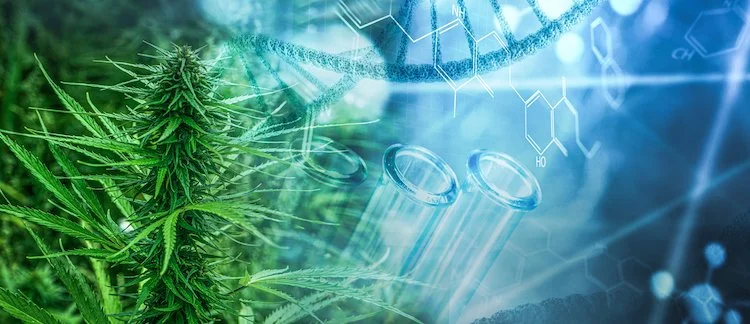Can CBD Help You Maintain Heart Health?
Growing Evidence Suggests It Can Lower Blood Pressure and Much More
By Dan Reich
Heart health is one of many areas being explored to determine the therapeutic health benefits of CBD. Nearly 655,000 Americans die from heart disease every year, accounting for one in every four deaths – the largest single cause of death in the US. The term “heart disease” is often used synonymously with cardiovascular disease, an umbrella term for all medical conditions affecting the heart and blood vessels in the body.
Heart disease can have many causes, including high blood pressure, narrowing of the arteries due to plaque, autoimmune disease, bacterial infections, diabetes, diets with too much sodium, refined carbohydrates or trans fats, excessive alcohol consumption, smoking, sedentary lifestyle, stress and viral infections. Unfortunately, according to the American Heart Association, the majority of people (82%) who engage in diets or lifestyles that put them at risk, choose not to make any changes until heart disease strikes.
CBD is perhaps best known for its anti-inflammatory properties. Research suggests that inflammation may be at the root of many chronic illnesses. Heart disease is associated with inflammation. Inflamed blood vessels make it harder for the heart to pump blood throughout the body. CBD also has antioxidative properties that may help reduce risk factors that can lead to heart disease. It may also be helpful in reducing the risk of related conditions, such as stroke.
Researchers have found that CBD is a vasodilator, meaning it can lower blood pressure by widening blood vessels and enabling the blood to flow more easily. During a 2017 study by the National Institute of Health, researchers learned that one dose of CBD reduced blood pressure in healthy participants.
An Effective Stress-Buster
Epidemiological studies have shown a positive relationship between long-term stress and the development of cardiovascular disease. A 2017 study in the UK involved a group of men who were tested for the effect of stress on blood pressure. Those who were given CBD had significantly lower spikes in their blood pressure after being subjected to stress.
Reducing the harmful effects of stress can also address factors such as social isolation, low socioeconomic status, depression, stressful family and work life, and anxiety…factors that are associated with an increased risk of the development and accelerated progression of existing cardiovascular disease.
CBD may also protect against cardiac arrhythmias, or irregular heartbeats, where the heart beats too fast, too slowly, or with an irregular pattern. Arrhythmias can be brought on by long-term stress, as high cortisol levels can raise blood pressure, blood cholesterol, blood sugar, triglycerides, and other risk factors for heart disease in general. CBD also has well-documented anti-anxiety properties which can help combat stress, lower cortisol, and protect against arrhythmias related to those causes. Sativa type THC, on the other hand, often exacerbates arrhythmias, causing the heart rate to quicken and increase the blood pressure.
In summary, CBD can mitigate cardiovascular disease through stabilizing blood sugar levels, easing inflammation, lowering blood pressure in the face of acute stress, and protecting the arteries from oxidative stress.
Additionally, CBD possesses neuro-protective abilities, which can minimize the chances of having a stroke, limit the damage if one occurs, promote recovery and improve survival rates.
How to Use CBD to Protect Your Heart
Seek out companies that use all natural organic hemp and avoid those that don’t list their third-party lab results publicly on their website. Any contaminants in low-quality oils could make underlying causes for heart disease worse, so it’s critical to ensure you only use high-quality products.
There are three main types of CBD products:
Full-spectrum, which contains multiple naturally occurring cannabis plant extracts, including terpenes, flavenoids and up to 100 other cannabinoids. Hemp will have less than 0.3% THC,
Broad-spectrum, contains CBD and other components/ cannabinoids found in the cannabis plant, but does not contain any THC.
Isolate, is pure CBD and is the only cannabinoid contained in the product,
Of these three, Full-Spectrum is considered the most effective, as they offer the benefits of the “entourage effect” providing the synergy with the other cannabinoids and terpenes increasing their effectiveness. At Synergy Wellness, we offer a wide range of highest quality full-spectrum CBD products.
CBD products can take the form of sublingual (under the tongue) tinctures, edibles, capsules, topicals and flower, which is either smoked or put into capsules. People at risk for heart disease, or already suffering from it, are not encouraged to smoke CBD flowers. Topicals offer relief from various skin and muscle issues, but won’t penetrate deep enough to address cardiovascular problems. That leaves tinctures, edibles and capsules. Tinctures are the fastest-acting of the three (20-30 minutes), and are easiest to measure dosages in drops. Edibles and capsules take slightly longer to achieve their effects(30-60 minutes), but are equally effective and often last longer.
Everyone, particularly if they already are suffering from cardiovascular disease, should discuss CBD with their health team to make sure that it won’t have any undesirableUsually interactions with medicines they may already be taking. Usually there are on interactions at low to normal doses of CBD. However, there can be rare interactions at super high doses of CBD. For the vast majority of people, CBD can be an invaluable ally in the fight against cardiovascular disease.
• • •



